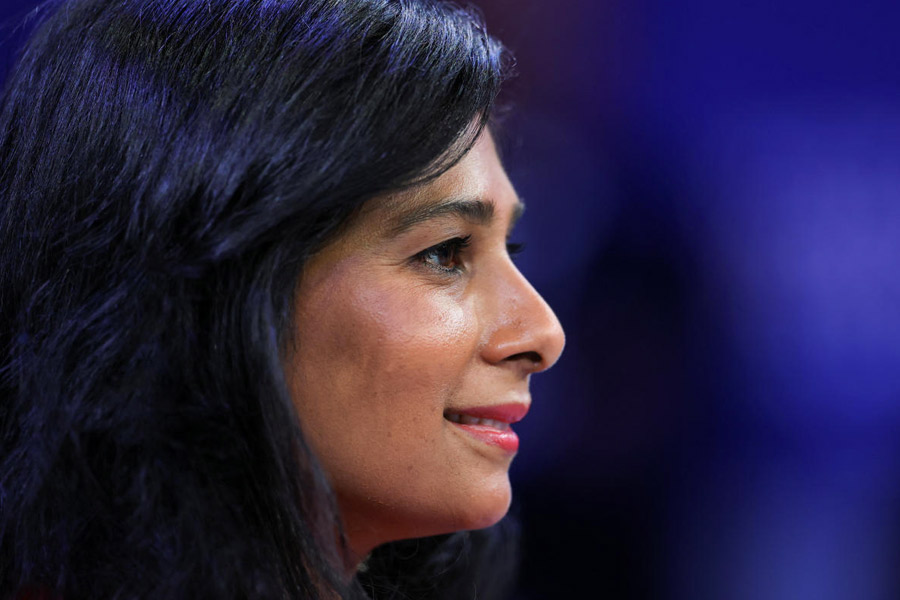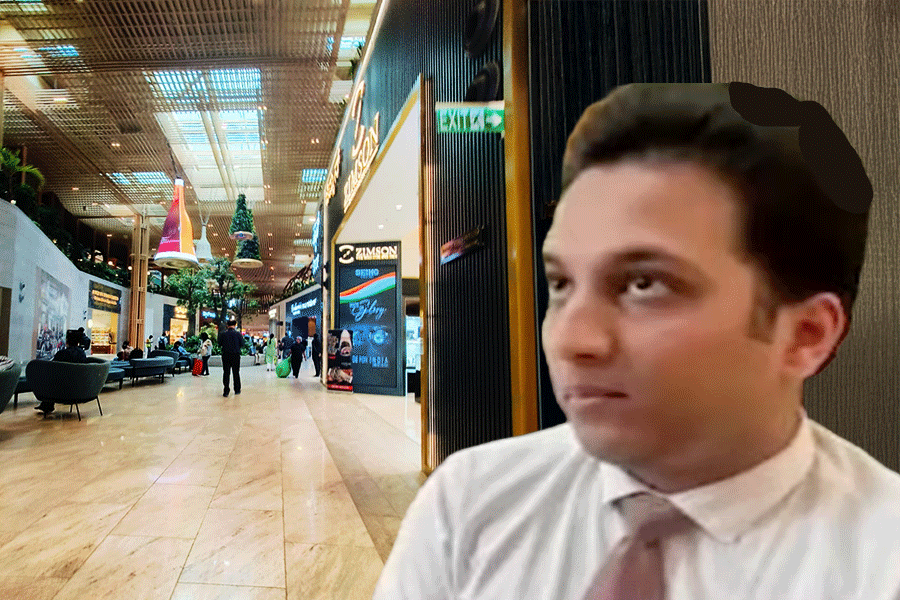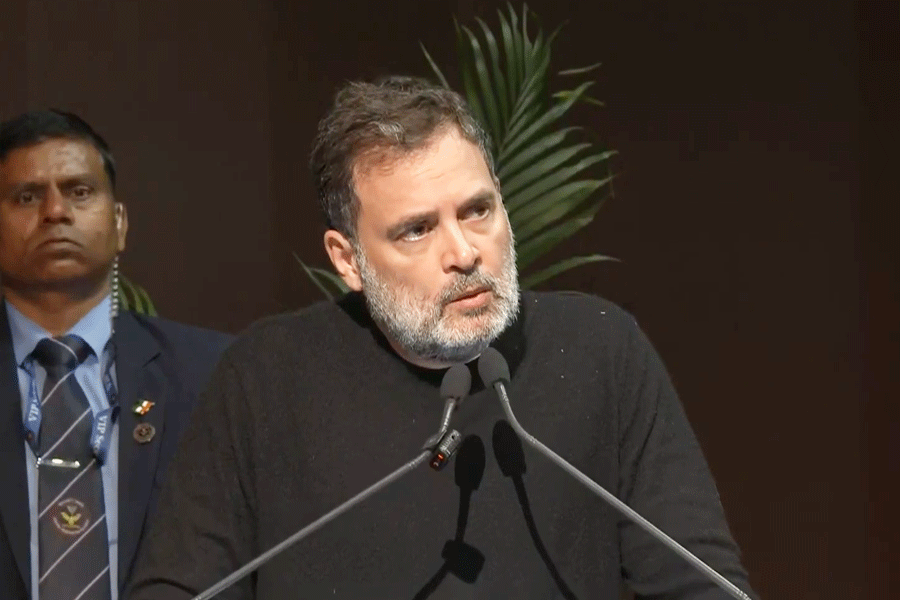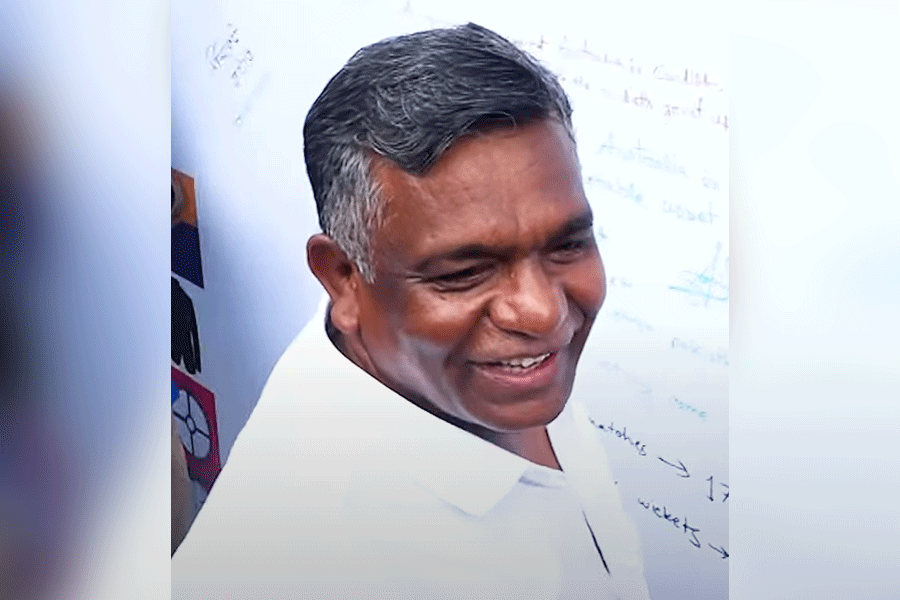 |
| Kamla Beniwal |
New Delhi, July 6: Gujarat governor Kamla Beniwal, whose four-year-plus stint in Gandhinagar was marked by a series of run-ins with the state government then helmed by Narendra Modi, was transferred to Mizoram in an order issued late this evening.
Beniwal’s tenure was due to end in October.
Going by Prime Minister Modi’s unstated policy to allow UPA-appointed Raj Bhavan incumbents at the fag end of their terms to continue in office, Beniwal was not expected to be asked to step down unless she opted to do so.
However, the accepted political wisdom was that the 87-year-old, often dubbed a “Congress agent” by Modi when he was chief minister, would be an early casualty of the NDA government’s expected shuffles and ousters in the backdrop of her troubled equation with the BJP leader.
Beniwal, who had the Congress’s unflinching trust, was sent from Tripura to Gandhinagar in November 2009, two years after Modi had won a second term in Gujarat.
Ironically, she is headed for Aizawl, not far from where she began her innings as governor.
The biggest bone of contention between Modi and Beniwal was the Gujarat Lokayukta Commission Bill, 2013. The Congress’s allegation was the legislation vested overarching powers in the chief minister to appoint the anti-corruption ombudsman and virtually eliminated the role of the governor and the high court chief justice.
The seed of the dispute had been sown in August 2011 when Beniwal appointed retired judge R.A. Mehta as the lokayukta. The appointment was made under Section 3 of the prevalent Gujarat Lokayukta Act, 1986, that empowered the governor to appoint the ombudsman without consulting the government.
The post had been lying vacant for nearly eight years.
There was, however, a history to the controversy that may have prompted Beniwal to take the step. The father of a murdered right-to-information activist, Amit Jethwa, had filed a public interest petition in the high court that served a show-cause notice to the Gujarat government, asking it to explain the delay in the ombudsman’s appointment.
The government set up a panel of five ministers to probe the murder, resorting to what appeared to be a delaying tactic. The Congress protested, after which Beniwal appointed Justice Mehta. The government challenged the appointment but the high court and the Supreme Court upheld it.
The bill was drafted shortly after that. The Assembly passed it in 2012 but the governor refused to sign it.
In 2011, when Modi launched his “Sadhbhavna (communal amity) Mission” and went on a three-day fast on a public platform, Beniwal had sought an audit of the expenses the government incurred. She sent a missive to a senior government official under the subject: “Related to expense from the public exchequer and financial irregularities of BJP CM Narendrabhai Modi.”
Prodded by Modi, the BJP raised both the issues in Delhi. It served a notice for suspending question hour in the Lok Sabha to discuss Beniwal’s “unilateralism” in the lokayukta’s appointment. Beniwal had also rejected several bills, including a controversial legislation on compulsory voting.
Beniwal was born into a Jat family in Rajasthan’s Jhunjhunu district. An MA in history, she became the state’s first woman minister at the age of 27, going on to hold various portfolios, including home, education and agriculture.
Rajasthan governor Margaret Alva has been asked to also look after Gujarat till Beniwal’s successor is appointed.
Mizoram governor Vakkom Purushothaman has been transferred to Nagaland where he will be based for the rest of his term.











